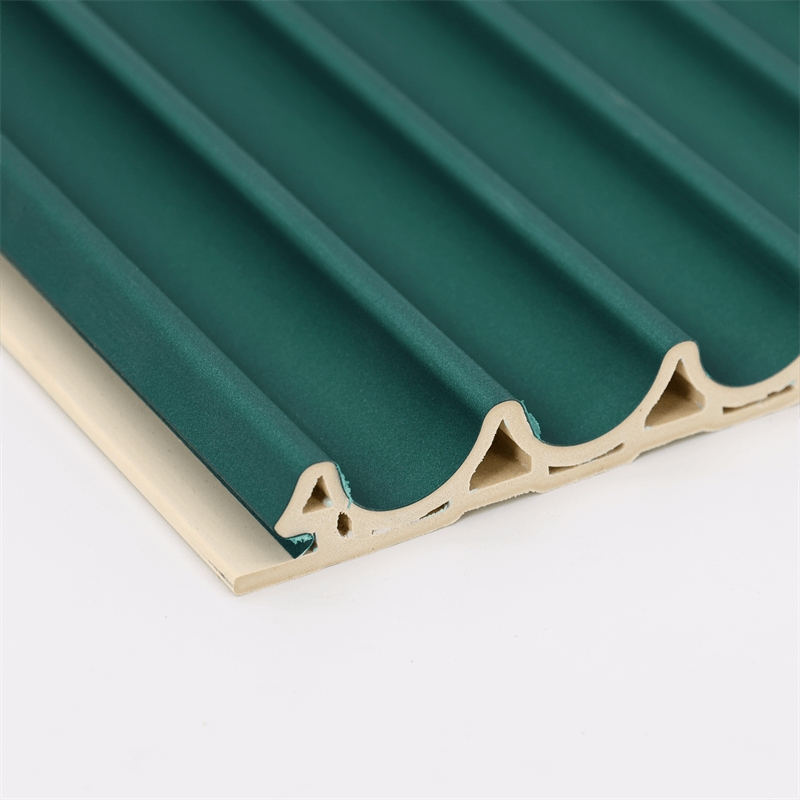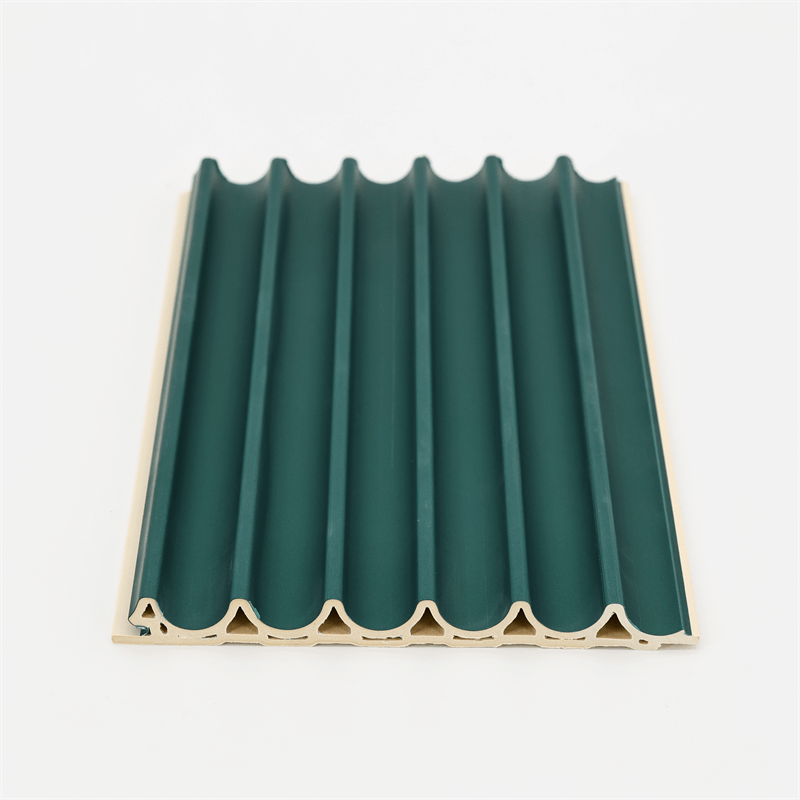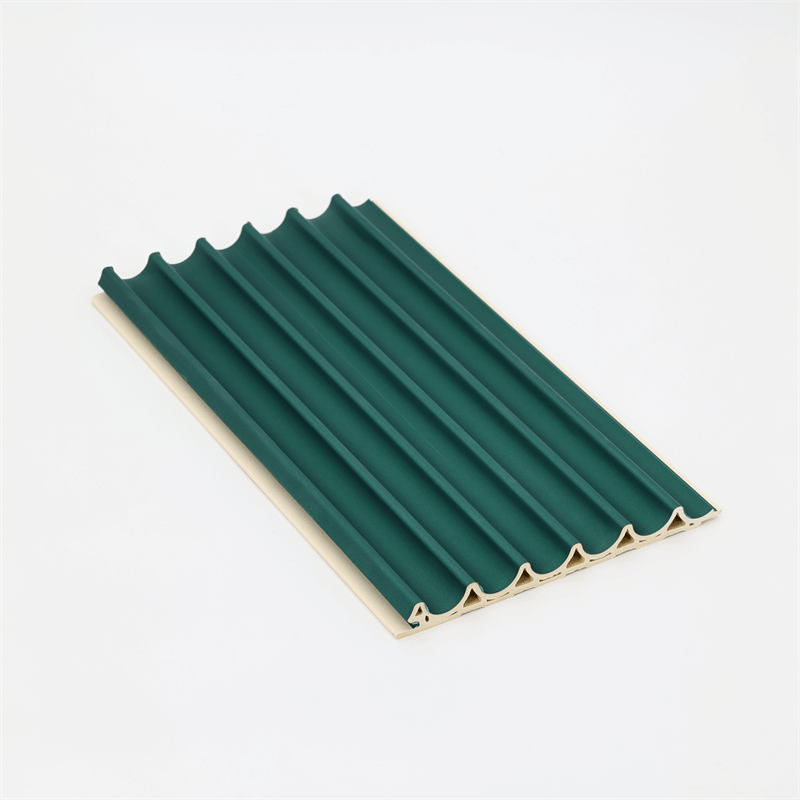In today’s world, WPC Wall Panels sustainability and environmental consciousness are becoming increasingly important considerations in various aspects of our lives.
When it comes to building materials, the demand for eco-friendly options is on the rise.
In this essay, we will explore the environmental benefits of WPC (Wood Plastic Composite) wall panels, highlighting how they contribute to sustainable living.
With four distinct subtitles, we will delve into the aspects of resource conservation, reduced carbon footprint, recycling, and improved indoor air quality.
By understanding these benefits, we can make informed choices that promote a greener and more sustainable future.
I. Resource Conservation: Minimizing Virgin Material Consumption
WPC Wall Panels: One of the key environmental advantages of WPC wall panels is their use of recycled materials.
They are typically composed of a blend of recycled wood fibers and plastic, reducing the need for virgin materials.
By utilizing recycled content, WPC panels help conserve natural resources and minimize the environmental impact associated with the extraction and processing of raw materials.
Reduced Carbon Footprint: By opting for WPC wall panels, we can significantly reduce our carbon footprint.
The production process of WPC panels consumes less energy compared to traditional materials like concrete or steel.
Additionally, the use of recycled materials in WPC panels further reduces greenhouse gas emissions, as it eliminates the need for the energy-intensive production of virgin materials.
II. Recycling: Extending the Lifespan of Materials WPC Wall Panels:
Another significant environmental benefit of WPC wall panels is their recyclability.
At the end of their lifespan, WPC panels can be recycled and used to produce new panels or other products.
This closed-loop recycling process reduces waste and minimizes the amount of material sent to landfills.
Recycling WPC panels helps conserve resources and contributes to the circular economy, promoting a sustainable and efficient use of materials.
III. Improved Indoor Air Quality: Promoting Health and Well-being
WPC Wall Panels: Indoor air quality is a crucial aspect of a healthy living environment.
WPC wall panels offer advantages in this regard, as they are free from volatile organic compounds (VOCs) and other harmful emissions.
Traditional materials, such as paint or adhesives, can release VOCs into the air, contributing to poor indoor air quality.
By choosing WPC panels, homeowners can create a healthier indoor environment for themselves and their families.
IV. Durability and Longevity: Minimizing Waste WPC Wall Panels:
WPC wall panels are known for their durability and longevity. They are resistant to rot, decay, and insect infestation, ensuring a longer lifespan compared to traditional materials.
The durability of WPC panels translates to reduced maintenance and replacement needs over time.
By using long-lasting materials, we minimize waste generation and the consumption of additional resources for repairs or replacements.
WPC wall panels offer numerous environmental benefits that contribute to sustainable living.
By utilizing recycled materials, they help conserve natural resources and minimize the demand for virgin materials.
The reduced carbon footprint during production further supports environmental conservation.
Additionally, the recyclability of WPC panels ensures that they can be repurposed at the end of their life cycle, reducing waste and promoting a circular economy.

Furthermore, WPC panels contribute to improved indoor air quality by being free from harmful emissions.
Their durability and longevity minimize waste generation and the need for frequent replacements.
By choosing WPC wall panels, we can make a positive impact on the environment while enjoying the aesthetic appeal and functionality they offer.
As we strive to build a greener and more sustainable future, considering the environmental benefits of materials like WPC panels becomes crucial.
By making conscious choices that prioritize sustainability, we can create healthier living spaces and contribute to a more sustainable planet for future generations.
In conclusion, WPC wall panels present a compelling case for their environmental benefits and their role in promoting sustainable living.
With their use of recycled materials, they help conserve natural resources and reduce the demand for virgin materials.
This not only minimizes the environmental impact associated with resource extraction but also contributes to a more circular and efficient economy.
The reduced carbon footprint during production further enhances their eco-friendliness, as the energy consumption is lower compared to traditional materials.
By choosing WPC panels, we can actively participate in reducing greenhouse gas emissions and mitigating climate change.
The recyclability of WPC wall panels adds another layer of sustainability to their lifecycle.
Instead of ending up in landfills, they can be recycled and transformed into new panels or other useful products.
This promotes resource conservation, waste reduction, and a more sustainable approach to material usage.
Furthermore, WPC panels contribute to improved indoor air quality by being free from harmful emissions.
This ensures a healthier and safer living environment for occupants, supporting their well-being and overall quality of life.
Lastly, the durability and longevity of WPC wall panels minimize the need for frequent replacements, reducing waste generation and extending the lifespan of the materials.
This not only saves resources but also helps to minimize the environmental impact associated with the disposal of old materials.
By choosing WPC wall panels, we can create a harmonious balance between aesthetics, functionality, and environmental responsibility.
They provide a sustainable alternative to traditional materials, enabling us to build and design spaces that are both beautiful and eco-friendly.
As we continue to prioritize sustainable living and embrace greener building practices, WPC wall panels offer a practical and sustainable solution.
By making conscious choices that consider the environmental impact of our decisions, we can contribute to a more sustainable future for ourselves and future generations.
Let us embrace the environmental benefits of WPC wall panels and take a step towards a more sustainable and resilient world.


